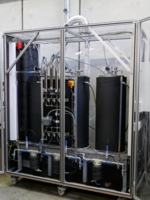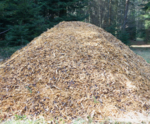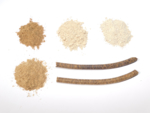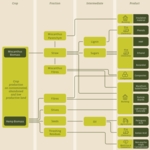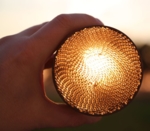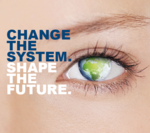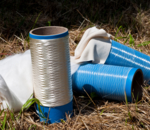-
Dossier - 09/11/2020

What will the packaging of the future look like, and what will be required of it? Can packaging be biobased, recyclable, sustainable and economic? In Baden-Württemberg, there are various approaches to developing packaging with the above properties from various sources including agricultural residual and side streams as well as municipal waste.
https://www.biooekonomie-bw.de/en/articles/dossiers/packaging-future
-
-
-
-
The “Rhizo-Lentil" EIP-AGRI project - 20/05/2020
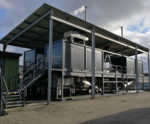
NovoCarbo GmbH produces biochar from plant residues such as wood chips, nutshells and manure. Different feedstocks, and the way these materials are processed, create biochars with different properties. This makes biochar suitable for different uses, including as a soil conditioner, in biogas plants or as bedding for stables and cowsheds. The Rhizo-Linse project is currently investigating whether biochar is also suitable as inoculant carrier for…
https://www.biooekonomie-bw.de/en/articles/news/novocarbo-turns-plant-waste-into-biochar
-
Dossier - 28/04/2020
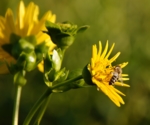
Biomass from forestry and agriculture along with residues from industry and households can contribute to our energy and raw material shift. Sustainable, regenerative biomass-based energy can become part of the energy mix of the future within the framework of a bioeconomy.
https://www.biooekonomie-bw.de/en/articles/news/Sustainable-bioenergy
-
Urban agriculture - 23/04/2020
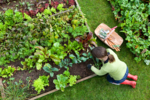
Given the challenges faced by modern agriculture, it is vital to raise people’s awareness of how to change their approach to food. The founders of the Stuttgart-based start-up company farmee GmbH see urban agriculture as the key to making this change possible. The company has developed “alphabeet”, an app designed to encourage consumers to produce their own food. After all, only those combining knowledge and practical experience can be expected…
https://www.biooekonomie-bw.de/en/articles/news/alphabeet-the-green-fingered-smartphone
-
-
Polysecure GmbH - 16/01/2020
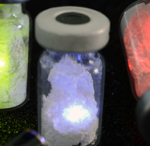
Plastics are harmful to the climate and human health both during manufacture and combustion and they also clutter our planet with garbage. Recycling is therefore a key issue, but it is not efficient. Polysecure has developed a process for permanently marking individual plastics that enables them to be separated efficiently and returned to a circular economy. This would counteract the vast amount of (micro) plastics and reduce CO₂ emissions.
https://www.biooekonomie-bw.de/en/articles/recycling-of-the-future-marked-plastic-as-a-circular-product
-
Producing valuable new products from waste materials - 07/01/2020
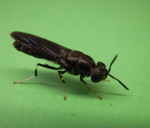
Eco-friendly and responsibly manufactured products are more in demand than ever before. Specific research is being carried out into materials and applications for a wide variety of uses. The Fraunhofer Institute for Interfacial Engineering and Biotechnology IGB is working with Hermetia Baruth GmbH on the vision of an insect biofactory that uses waste materials to produce a wide range of products such as biosurfactants, animal feed or foils.
https://www.biooekonomie-bw.de/en/articles/news/A-vision-insect-biorefineries-as-components-of-a-sustainable-bioeconomy
-
EIP-AGRI project coordination - 12/12/2019
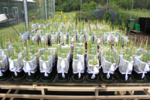
Lentil plants, rarely cultivated in Central Europe in the twentieth century, are making a comeback. The "Rhizo-Linse"1 EIP-AGRI project aims to reintroduce old lentil varieties and make them appealing to farmers. A company called nadicom Gesellschaft für angewandte Mikrobiologie mbH is working on the development of an ecological product consisting of nodule bacteria that can improve lentil plant growth.
https://www.biooekonomie-bw.de/en/articles/news/nadicom-Rhizo-Linse-project-excellent-small-fertiliser-factories
-
CRISPR/Cas9 and genetic engineering laws - 27/11/2019
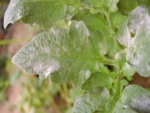
Plant geneticists from Tübingen have used genome deletion to breed a variety of tomato that is resistant to powdery mildew. The CRISPR/Cas9 technology that they used enabled them to achieve this in a relatively short period of time. They also demonstrated beyond any doubt that the new tomato variety contains no foreign DNA and is indistinguishable from naturally occurring deletion mutants.
https://www.biooekonomie-bw.de/en/articles/news/transgene-free-plant-breeding-using-genome-editing
-
Dossier - 15/11/2019
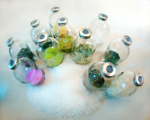
The negative image of plastic persists and is not getting any better in the face of the ongoing debate about microplastics which are basically everywhere. Plastic pollutes the environment. The globe is littered with huge quantities. We have to modify the production and utilisation of macroplastics as well as fundamentally rethink the way we dispose of them. ‘Out of sight, out of mind’ mentality must become a thing of the past.
https://www.biooekonomie-bw.de/en/articles/dossiers/waste-valuable-resource-wrong-place
-
Article - 21/10/2019
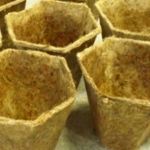
Plastic plant pots are not good for the environment; strictly speaking, they should not even be disposed of in recycling bins. Alternatives such as coconut fibre pots are compostable, but not pollutant-free and not "bio" at all. The Karlsruhe-based company Fiber Engineering has developed a truly ecofriendly way to grow plants: pots made of hemp or grass, which are preserved with biological components and decompose completely within a…
https://www.biooekonomie-bw.de/en/articles/news/pflanztoepfe-aus-naturfasern-bio-ohne-wenn-und-aber
-
-
-
-
Dossier - 15/04/2019
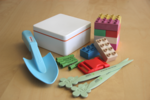
Plastic waste takes years to decompose and pollutes the environment. Nevertheless, plastics are an indispensable part of everyday life. It is therefore all the more important to find a meaningful alternative that is sustainable, environmentally friendly and has better properties and more functionality than conventional plastics. In addition, such an alternative should not be dependent in any way on fossil resources.
https://www.biooekonomie-bw.de/en/articles/dossiers/the-alternative-bioplastics
-
Article - 02/04/2019
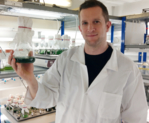
For many decades, glyphosate has been a common component of agricultural pesticides worldwide, although it is a controversial herbicide that may be harmful. The good news is that a more sustainable alternative is now in sight: researchers from the University of Tübingen have discovered a sugar molecule called 7-deoxy-sedoheptulose (7dSh) which inhibits the growth of plants and microorganisms, but appears to be completely harmless to human cells.
https://www.biooekonomie-bw.de/en/articles/news/simple-sugar-could-soon-compete-with-glyphosate
-
Article - 27/03/2019
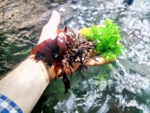
Algae are frugal organisms. They require only light, water, minerals and carbon dioxide to be able to produce biomass. These properties will now be exploited economically in a two-year research project. Dr. Stefan Sebök from the University of Hamburg plans to study the holistic utilisation of degradation products of a biogas plant in Wallerstädten by linking them to land-based algae cultivation.
https://www.biooekonomie-bw.de/en/articles/news/residues-from-biogas-plants-as-feed-for-algae
-
-
Article - 12/03/2019
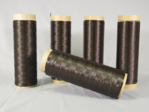
Carbon fibre is increasingly found in airplanes, cars and wind turbines. Carbon fibre is still made from oil and relatively expensive. However, this is soon to change. Researchers from the German Institutes of Textile and Fibre Research in Denkendorf (DITF) are working on the development of cost-effective carbon fibre made of lignin, a by-product of papermaking.
https://www.biooekonomie-bw.de/en/articles/news/biocarbon-fibres-made-of-lignin
-
Dossier - 04/03/2019
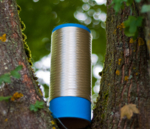
Baden-Württemberg is known for innovation in textiles and for playing a decisive role in the development of sustainable textiles for the future both in the clothing and the booming technical textile sectors. Companies and research institutes are focused on making the entire textile value chain from raw materials, production and useful life to disposal more sustainable than ever before.
https://www.biooekonomie-bw.de/en/articles/dossiers/sustainable-textiles
-
Website address: https://www.biooekonomie-bw.de/en/search

